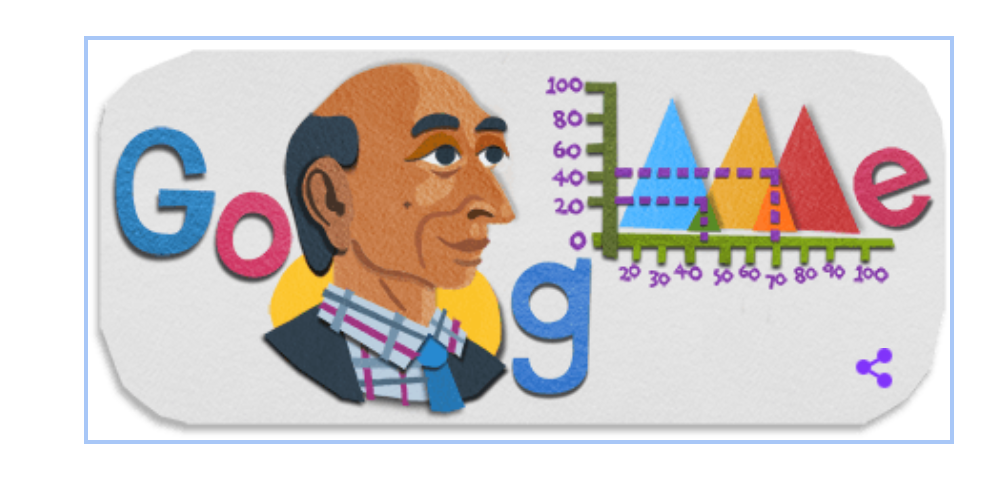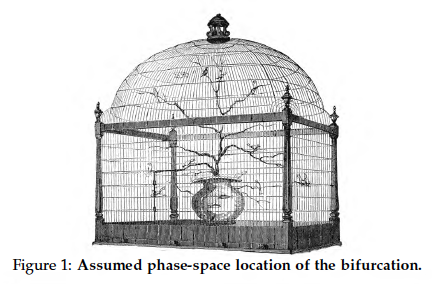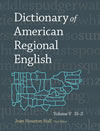Tuoba and Xianbei, part 2
Read the rest of this entry »
Read the rest of this entry »
The Google Doodle for November 30 featured Lotfi Zadeh.

The Doodles page explains that
Today’s Doodle celebrates world-renowned Azerbaijani-American computer scientist, electrical engineer, and professor, Lotfi Zadeh. On this day in 1964, Zadeh submitted “Fuzzy Sets,” a groundbreaking paper that introduced the world to his innovative mathematical framework called “fuzzy logic.”
You can learn more about this contribution from the Wikipedia page on Fuzzy Mathematics. What I learned, from reading the Other Contributions section of Zadeh's Wikipedia page, was his role in the invention (discovery?) of the z-transform.
Read the rest of this entry »
Three decades ago, in 1990, I attended a five-week summer institute on Indo-European linguistics and archeology at the University of Texas (Austin). The institute was organized by Edgar Polomé (1920 [b. Molenbeek-Saint-Jean, Brussels, Belgium]-2000) and Winfred Lehmann (1916 [b. Surprise, Nebraska]-2000) and was supported by a generous grant from the National Endowment for the Humanities. It seemed like half of the most important Indo-Europeanists of the day paraded through the Institute.
I remember Homer Thomas drawing hundreds of pots on the gigantic blackboard, stretching about 50 feet across the front of the lecture hall and 7 or 8 feet tall, and unerringly identifying their site and culture names, pointing out their relationships by shape and ornamentation. That was really quite a breathtaking performance, one that went on a whole week for a couple of hours each day, if I remember correctly.
Read the rest of this entry »
From the Washington Post:
The study is a corpus analysis performed by Jesse Egbert, a corpus linguist at Northern Arizona University and Clark Cunningham, a law professor who did work in law and linguistics from the late 1980s through the mid-1990s (link, link, link, link), including co-authoring an article with Chuck Fillmore that was what really opened my eyes to the power of linguistics in analyzing issues of word meaning.
Read the rest of this entry »
We have often noted how much easier it is to learn Chinese now than it was just ten or twenty years ago. That's because of all the new digital resources that have become available in recent years:
Of course, there are a lot quick fix programs out there, and one should be wary of them:
But every so often a really good resource comes along, and I should like to introduce one such in this post.
Read the rest of this entry »
 In "Advances in birdsong modeling", 4/1/2017, I discussed Eve Armstrong's brilliant research report "A Neural Networks Approach to Predicting How Things Might Have Turned Out Had I Mustered the Nerve to Ask Barry Cottonfield to the Junior Prom Back in 1997". Now, a year later, Dr. Armstrong has followed up with "Colonel Mustard in the Aviary with the Candlestick: a limit cycle attractor transitions to a stable focus via supercriticalAndronov-Hopf bifurcation".
In "Advances in birdsong modeling", 4/1/2017, I discussed Eve Armstrong's brilliant research report "A Neural Networks Approach to Predicting How Things Might Have Turned Out Had I Mustered the Nerve to Ask Barry Cottonfield to the Junior Prom Back in 1997". Now, a year later, Dr. Armstrong has followed up with "Colonel Mustard in the Aviary with the Candlestick: a limit cycle attractor transitions to a stable focus via supercriticalAndronov-Hopf bifurcation".
Read the rest of this entry »
Before I finish typing "red", Google is already suggesting "red herring", which is what I was looking for.
When I've barely begun to type "Philadelphia" or "Seattle" and only one "Walla", Google is already suggesting ""Philadelphia weather", "Seattle weather" and "Walla Walla weather", which is what I was looking for in each case.
If I want to check in on American Airlines, all I have to type is "ame", and — voilà! — there it is!
I was trying to think of a certain kind of Japanese tomb. I typed in "Japanese tombs" and, remembering that these tombs resemble a keyhole, I added "k", and up popped "japanese keyhole tombs".
I do this kind of search hundreds of times every day, and I'm infinitely grateful to Google for enabling them and making them seem (on my end) so effortless.
Read the rest of this entry »
A couple of weeks ago, I wrung my hands on Facebook over the proliferation of commercial publishers' Handbooks of Linguistics. These are usually priced out of individuals' budgets, being sold mostly to university libraries, and the thousands of hours of work poured into them by dedicated linguists are often lost behind a paywall, inaccessible to many of the people who would most like to read them.
That post prompted a flood of urgent discussion; it seemed like this was a thought that was being simultaneously had around the world. (Indeed, Kai von Fintel had posted the identical thought about six months prior; probably that butterfly was the ultimate cause of the veritable hurricane that erupted on my feed.)
Long story short, a few weeks later we now have a proto-editorial board and are on to the next steps of identifying a venue and a business model for the series. Please check out our announcement below the fold, and follow along on our blog for updates as the series develops!
Read the rest of this entry »
I recall that, as a graduate student in Sinology, one of the most troublesome tasks was figuring out how to romanize the names of Japanese authors, the titles of their works, place names, technical terms, and so forth. Overall, Japanese Sinological (not to mention Indological and other fields) scholarship is outstanding, so we have to consult it, and when we cite Japanese works, we need to be able to romanize names, titles, and so forth to reflect their Japanese pronunciations.
Read the rest of this entry »
 Two years ago I sent out an "SOS for DARE," that is, a plea for the indispensable Dictionary of American Regional English, which had run into funding troubles. Though DARE was granted a temporary reprieve, the latest news is more dire than ever.
Two years ago I sent out an "SOS for DARE," that is, a plea for the indispensable Dictionary of American Regional English, which had run into funding troubles. Though DARE was granted a temporary reprieve, the latest news is more dire than ever.
Marc Johnson laid out the situation in an article for the Milwaukee Journal-Sentinel:
The end may be near for one of the University of Wisconsin-Madison's most celebrated humanities projects, the half-century-old Dictionary of American Regional English. In a few months, the budget pool will drain to a puddle. Layoff notices have been sent, eulogies composed…
Read the rest of this entry »
Gary Marcus and Ernest Davis say in a New York Times piece on why we shouldn't buy all the hype about the Big Data revolution in science:
Big data is at its best when analyzing things that are extremely common, but often falls short when analyzing things that are less common. For instance, programs that use big data to deal with text, such as search engines and translation programs, often rely heavily on something called trigrams: sequences of three words in a row (like "in a row"). Reliable statistical information can be compiled about common trigrams, precisely because they appear frequently. But no existing body of data will ever be large enough to include all the trigrams that people might use, because of the continuing inventiveness of language.
To select an example more or less at random, a book review that the actor Rob Lowe recently wrote for this newspaper contained nine trigrams such as "dumbed-down escapist fare" that had never before appeared anywhere in all the petabytes of text indexed by Google. To witness the limitations that big data can have with novelty, Google-translate "dumbed-down escapist fare" into German and then back into English: out comes the incoherent "scaled-flight fare." That is a long way from what Mr. Lowe intended — and from big data's aspirations for translation.
Read the rest of this entry »
Permalink Comments off
A month ago, I posted an "SOS for DARE," detailing the impending financial threat faced by the Dictionary of American Regional English, a national treasure of lexicography. At the time it appeared that the College of Letters and Sciences at the University of Wisconsin, where DARE is based, would be unable to provide support to offset the loss of federal and private grant money. But now there's finally some good news out of Madison, in the form of new funds from the University and external gifts.
Read the rest of this entry »
 Many Language Log readers are no doubt familiar with the Dictionary of American Regional English, which I hailed in a Boston Globe column last year as "a great project on how Americans speak — make that the great project on how Americans speak." At the time, I was previewing DARE's fifth volume, which completed the alphabetical run all the way to zydeco. Since then, a sixth volume of supplemental materials has also been published, and plans are underway to launch the digital version of DARE, which would serve as an online home for future expansions and revisions. But now DARE editor Joan Hall passes along some troubling news about the dictionary's financial fate.
Many Language Log readers are no doubt familiar with the Dictionary of American Regional English, which I hailed in a Boston Globe column last year as "a great project on how Americans speak — make that the great project on how Americans speak." At the time, I was previewing DARE's fifth volume, which completed the alphabetical run all the way to zydeco. Since then, a sixth volume of supplemental materials has also been published, and plans are underway to launch the digital version of DARE, which would serve as an online home for future expansions and revisions. But now DARE editor Joan Hall passes along some troubling news about the dictionary's financial fate.
Read the rest of this entry »